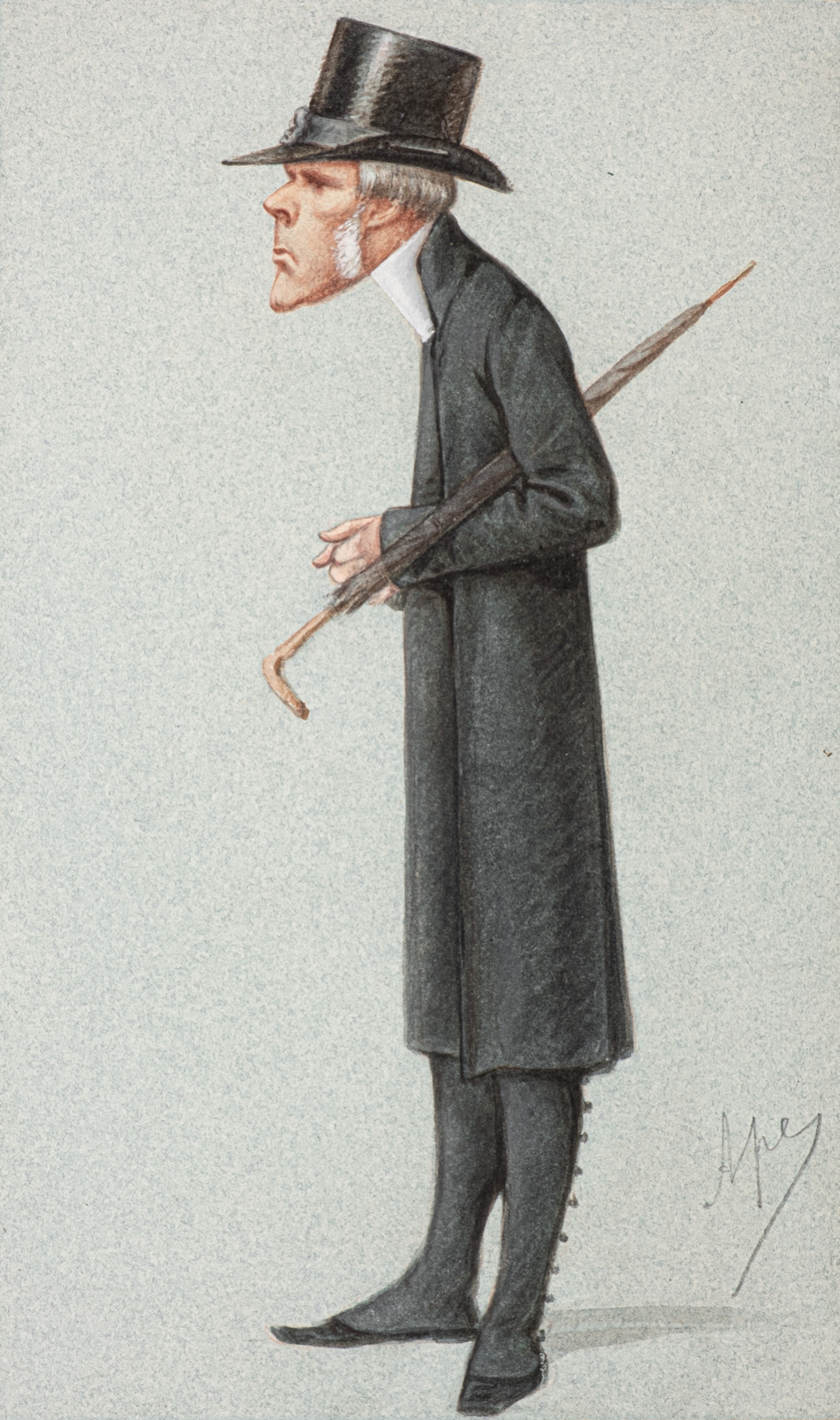
(click image to enlarge)
In 1868, John Jackson (1811-1885) was named bishop of London by Benjamin Disraeli, replacing Archibald Tait, following his translation to Archbishop of Canterbury. Jackson had been rector of St James’s, Piccadilly in 1846, a chaplain to Queen Victoria in 1847, an honorary canon of Bristol Cathedral in 1852 and, from 1853, bishop of Lincoln. He served as bishop of London until his death in 1885.
“The Bishop of London is a prelate against whom no unkind word was ever spoken, as, on the other hand, he is a remarkable example of the large measure of worldly success which is often attained by unworldly men. He is an Oxford scholar, and has been a Boyle lecturer. On the summit of Muswell Hill, two or three bowshots from the residence of Mr. Mudie, the great librarian, there stands an ivy-covered church, with a slender spire, pointing the way that Mr. Mudie should in duty go, and, let us hope, is going - not too fast, for we cannot very well spare him - heavenwards. Of this church Dr.Jackson was appointed curate when it was erected, some thirty years ago, at the instance of Canon Harvey, the Rector of Hornsey. He then became master of the Islington Grammar School; and when the late Bishop Bloomfield offered the living of St. James's, Westminster, to Mr. Harvey, the latter feeling a preference for his rural retreat, and perfectly satisfied of the harmlessness, combined with a respectable amount of earnestness, and any amount of sincerity and hard work, of his friend Jackson, recommended him for the preferment, and his recommendation was adopted. From St. James's, Dr.Jackson was translated direct - without going through the purgatorial experiences of a Deanery - to the heaven of Episcopacy, as Bishop of Lincoln, the good city over which the devil in former times used to look with envy, on account of its numerous steeples. In 1869, when Bishop Tait went to Canterbury, people were surprised to see the good Bishop of Lincoln removed to the See of London. So far, however, the experiment has been a successful one, as the lion of Tractarianism has since lain quietly down with the lamb of Evangelicalism, and something as nearly as possible approaching to a little child in spirit leads them. The works of Dr.Jackson are highly creditable to the Episcopal functions. He has ten or twelve daughters. He has grieved more than others over ‘The Sinfulness of Little Sins.’ His ‘Christian Character’ is highly esteemed; and his ‘Repentance’ has been much talked of. As Dr.Jackson has had the good sense and the necessary tact to keep out of hot water in the See of London, there is a reasonable ground for hope that he will be as successful hereafter, as he has been hitherto, in avoiding the snares of Satan.”